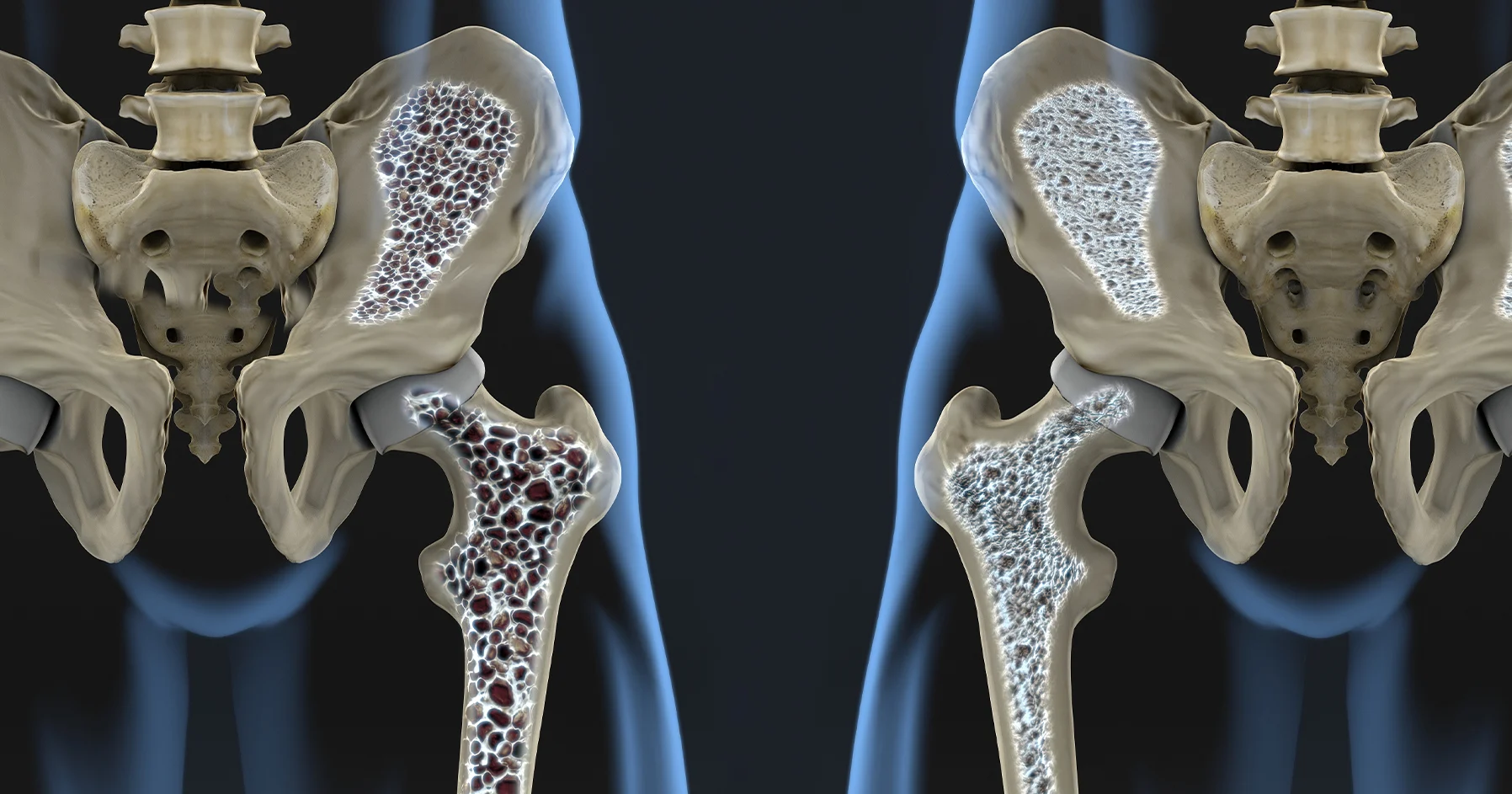Osteoporosis is a condition with weak and brittle bones. It leads to a risk of fractures. It is a major public health problem, which affects millions of people worldwide.
Here are two methods to prevent osteoporosis.
Lifestyle changes and Medication.
Lifestyle Changes
1. Eating a healthy diet.
A diet that is rich in calcium and vitamin D is gold for bone health.
Good sources of calcium include:
Dairy products
Leafy green vegetables
Fortified foods
Vitamin D is in fatty fish, egg yolks, and fortified foods.
2. Exercising.
Exercises such as walking, running, and dancing, work on bones to make them strong. Strength-training exercises, such as lifting weights, help to build muscle mass. Which can help to protect bones from injury.
3. Avoid smoking and drinking.
Smoking and excessive drinking weaken bones.
4. Fall prevention.
Falls are a major cause of fractures in people with osteoporosis. There are a few methods to reduce the risk of falls. Make sure your home is safe, wear supportive shoes, and use a cane or walker if needed.
Medication
In some cases, medication is required to prevent or treat osteoporosis.
There are different types of osteoporosis medications available.
Diagnosis and Treatment
If you feel concerned that you may have osteoporosis, talk to your doctor. They will do a physical exam and may order a bone density test, such as a DEXA scan.
A DEXA scan can measure the amount of bone mineral density (BMD) in your bones. Low levels of BMD is a sign of mild osteoporosis.
If you are diagnosed with osteoporosis, your doctor will develop a treatment plan. This plan may include lifestyle changes, medication, or a combination of both.
Outlook
Osteoporosis is a lifelong condition, but it can be managed with proper treatment.
Here are some additional tips for preventing and managing osteoporosis:
Get regular checkups with your doctor.
Discuss the risk factors with your doctor.
Keep track of enough calcium and vitamin D.
Exercise regularly, including weight-bearing and strength training.
Avoid smoking and excessive alcohol consumption.
Take steps to fall-proof your home.
Building Strong Bones: Prevention Tips for Osteoporosis
1. Calcium and Vitamin D: The Foundation of Bone Health:
Calcium is a vital mineral to build strong bones. Add calcium-rich foods to your diet. Such as dairy products, leafy greens, and fortified cereals into your diet. Also, make sure adequate vitamin D intake. As it helps the body absorb calcium. Natural sources of vitamin D are sunlight exposure and foods like fatty fish, egg yolks, and fortified products.
2. Regular Weight-Bearing Exercise:
Weight-bearing exercises like walking, dancing, and jogging, help strengthen bones. Take time for at least 30 minutes of exercise. It’s better to discuss with your doctor before starting any new exercise.
3. Healthy Diet for Strong Bones:
Besides calcium and vitamin D, other nutrients play a vital role in bone health.
Ensure a well-balanced diet that includes foods rich in
Magnesium
Potassium
Vitamin K and Phosphorus.
These nutrients are in fruits, vegetables, whole grains, lean proteins, and nuts.
4. Avoiding Smoking and Limiting Alcohol Intake:
Smoking affects bone health and increases the risk of fractures. Quitting smoking is beneficial for overall health, including bone strength.
Additionally, excessive drinking can impair bone health and increase the risk of falls.
Limit alcohol to moderate levels.
5. Fall Prevention:
Minimizing the Risk of Fractures:
Taking steps to prevent falls is crucial in reducing the risk of fractures.
Especially for individuals with osteoporosis. Remove hazards at home, ensure proper lighting, and wear appropriate footwear. And consider assistive devices if needed.
Regular exercise and maintaining strong muscles can also help with balance and stability.
Conclusion:
Preventing and managing osteoporosis requires a comprehensive approach. That includes lifestyle modifications and appropriate medical care.
Remember, it’s never too early or too late to take care of your bone health.
Talk to your doctor so they can make treatment plans just for you.
By taking proactive steps, you enjoy an active and independent life.



